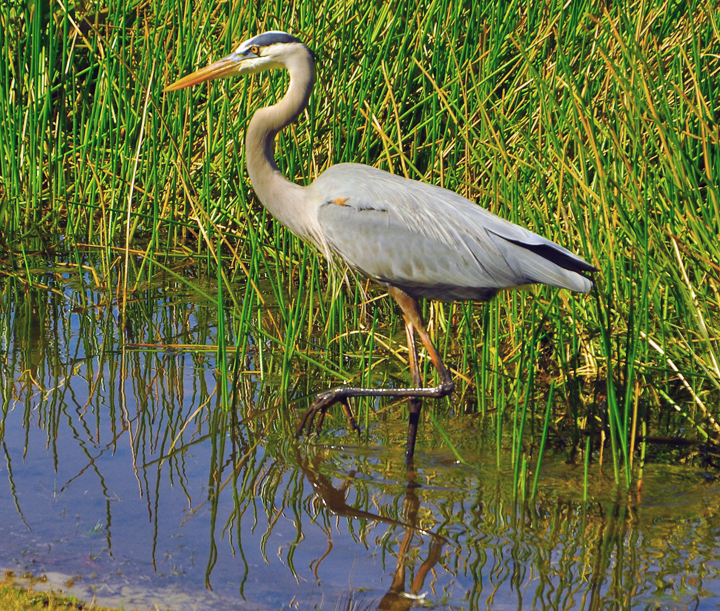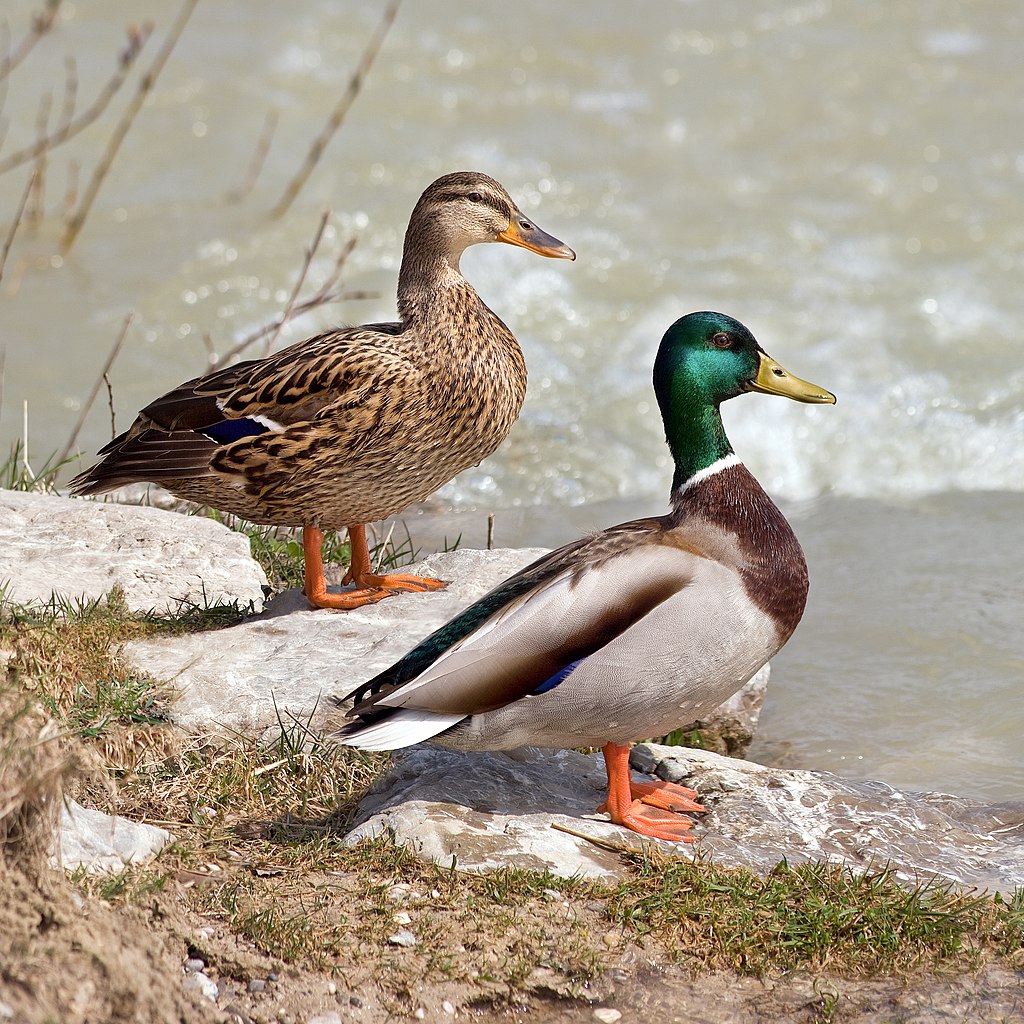
The Peace of Wild Things//Mallard Musings
A friend recently posted the following poem by Wendell Berry on social media. It hit me in the right spot.
The Peace of Wild Things
When despair for the world grows in me
and I wake in the night at the least sound
in fear of what my life and my children’s lives may be,
I go and lie down where the wood drake
rests in his beauty on the water, and the great heron feeds.
I come into the peace of wild things
who do not tax their lives with forethought
of grief. I come into the presence of still water.
And I feel above me the day-blind stars
waiting with their light. For a time
I rest in the grace of the world, and am free.


Last week, I took my nine-month-old daughter on a stroll. The rigors of caring for an infant, stacked on top of the everyday stresses and necessities of modern life, mean these types of excursions are rare. They must be carved out. They are particularly difficult during the winter. I might enjoy the coldness, but does the young one? These walks are hard to materialize, but I love them and do all I can to see them happen.
On this particular journey, we came upon a pond. As we neared, I spied the certain dots of duck domes. Five mallards. Their plumages are unmistakable. The green neon-sign heads of the males and the divinely dappled brown palette of the females. I was excited, as my daughter has started to notice birds and other animals. As we approached, however, our presence spooked the ducks. They took off in a frenzied huff.
My daughter tracked them in the sky, so I stopped to let her marvel. We watched until they became tiny specks in the firmament.

Usually, we encounter ducks in mating pairs. Our oddly numbered group contained three males and two females. As the beautiful flying creatures neared the horizon, they banked to the left for some reason. Four of them remained in a tight formation, but one seemed to be out of sync. I waited for the fifth mallard to rejoin the group, an expert at aviation overcoming minor turbulence. The main group continued to turn hard and the fifth seemed lost. As they descended in the distance, out of our view, I could see he had not found his compatriots. The fifth duck landed in a remote location.
This happening immediately grabbed me. We had caused this separation. More accurately, I had caused this separation. My daughter did not choose this walk and she did not make a sound, which also would not have been under her control at this point. No worry, I thought, ducks are far better adapted to surviving the wild than we are. The fifth duck will surely use his super duck senses to locate the group.
Then I recalled, we encounter ducks in mating pairs. Here, we found five. I told myself this lone male could be the offspring of one of the pairs, waiting to outgrow his parents and find his lifemate. But, deep down, I knew better. The unforgiving physical world had, more likely, taken this duck’s mate. Predation, car strike, disease. This duck was probably on his own. Was he accepted as a widower or were the four merely tolerating his tagalong behavior? When I watched the five aloft separate into pairs and the ugly duckling, the pessimist in me thought he had just lost his spot in a group.
And I had precipitated this expulsion.
My mind wandered to all the times I felt alone during my life. All the rejections, disappointments, moral and psychic crises, depressions, and despairs. Then I transferred those solitudes to a life wholly spent in nature, struggling for survival. I would not wish my lowest points on any living organism. Had I just doomed a duck to fend for himself? I looked at my daughter, who was thinking infant thoughts, and wished I could spare her from these solitudes. Physically, I can pledge to do so for as long as I am capable, but, of course, one day I will no longer be here.
Perhaps the state of the world at large weighed on my mind. Two years of global disease and a fresh war in Europe are enough to concern fathers of daughters or just a discerning human. I paused a few moments, hoping the ducks might ascend again and reunite in the sky. I knew it would not happen, so we pushed onward.
I looked down at the gorgeous little human with me and my heart sang with a spark. Yet, in the back of my mind, as the sun sank, I felt a solitary animal sensing darkness coming.
The ducks stayed with me all week.
It dawned on me, eventually, that I was placing myself at the center of the universe. I did not want the duck to be alone and I did not want to cause it trouble, but I was focusing on my negative feelings, placing myself at the high point of importance. Yes, our presence caused the flock to fly, but I had not compelled anything. I was not a godlike manipulator. Here was a being who works every moment to find food, to persevere through the cold, while I dwelled on my terrible impact on the universe. This duck would probably look at me and say, “get over yourself, buddy. You think you matter to my life?”
No matter how I view myself, I needed to take a step back for the proper frame of reference.
Then I encountered the poem by Wendell Berry and everything unified. I have often despaired at the type of world into which I brought a daughter, one filled with war and cruelty; I have found myself waking to the slightest sound, worrying for the present and the future; I fret over wasting potential and talent; I worry about the harm I introduce to the world.
But, there I am with my daughter, watching the mallards. We are able to see ducks. That is grace. And it does bring peace.
A week later, I walked with my wife and my daughter. We neared the same pond. I thought about the ducks and the dread of causing harm rose in my spirit again. I kept it to myself. There, on the water, were five birds. Not four! We all paused to watch these beings that (I hope) “do not tax their lives with forethought of grief.” My daughter babbled at the birds, while my wife smiled. The birds, this time, did not depart. I told myself it was the same five mallards, though I have absolutely no way to know that is true. For a time, I am free.
Further Reading and Exploration
Wendell Berry – Poetry Foundation
Wendell Berry – Academy of American Poets
Mr. Wendell Berry of Kentucky – Internet Resources












